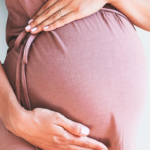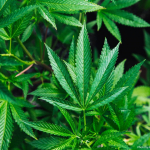At the annual meeting of the American Psychiatric Association (presented virtually this year), Dr. Kimberly Yonkers from the Center for Wellbeing of Women and Mothers at Yale University presented on the prevalence of substance use among pregnant women.
According to data from the most recent National Survey on Drug Use and Health (NSDUH), tobacco use was reported by 11.6% of pregnant women. During pregnancy, 9.9% of women reported using alcohol and 5.4% reported using recreational drugs (most commonly marijuana).
The good news is that most women are able to eliminate or at least reduce the consumption of alcohol, tobacco and drugs during pregnancy. The bad news is that, according to Dr. Yonkers, these numbers may underestimate the prevalence of substance use during pregnancy. Most studies, including the NSDUH, rely on self report of substance use. Given women’s concerns about negative appraisals from health care providers and fears that child protective services may be notified, it is likely that many women may not accurately report their usage of alcohol and other substances during pregnancy.
This is, in fact, exactly what was observed in a study which relied upon laboratory evidence of drug use in addition to self report (Ondersma et al, 2019). In this study, a sample of 1220 racially, ethnically and socioeconomically diverse pregnant women (18 years and older) were drawn from four prenatal care clinics in the United States.
The researchers assessed substance use in this sample using urine testing and self-reported use and found that 315 out of 1220 participants (26.3%) used alcohol or some type of substance during pregnancy. Rates varied across sites. Alcohol use was as high as 18.9% among pregnant women. Rates of tobacco use were 27% at one site included in the study, and use of cannabis was 29.4% at that same center.
While there is considerable variation in the prevalence of substance use across the sites included in this report, this finding suggests that the use of substances in pregnant women may be 2 to 3 times higher than previous studies such as the NSDUH have reported. Given the risks associated with the use of substances during pregnancy, this is a significant public health concern. As there has been a significant increase in the use of cannabis among younger women over the last decade, we expect to see numbers of cannabis-exposed pregnancies to increase in the coming years.
Ruta Nonacs, MD PhD
Read More:
Ondersma SJ, Chang G, Blake-Lamb T, Gilstad-Hayden K, Orav J, Beatty JR, Goyert GL, Yonkers KA. Accuracy of five self-report screening instruments for substance use in pregnancy. Addiction. 2019 Sep;114(9):1683-1693.
Yonkers K. Substance use disorders in perinatal women. Presented at: American Psychiatric Association Spring Highlights Meeting; April 25-26, 2020 (virtual meeting).
The landscape of perinatal substance use: Prevalence, outcomes and interventions (Healio)
NSDUH data might underestimate substance use by pregnant women (MD Edge Psychiatry)








Leave A Comment